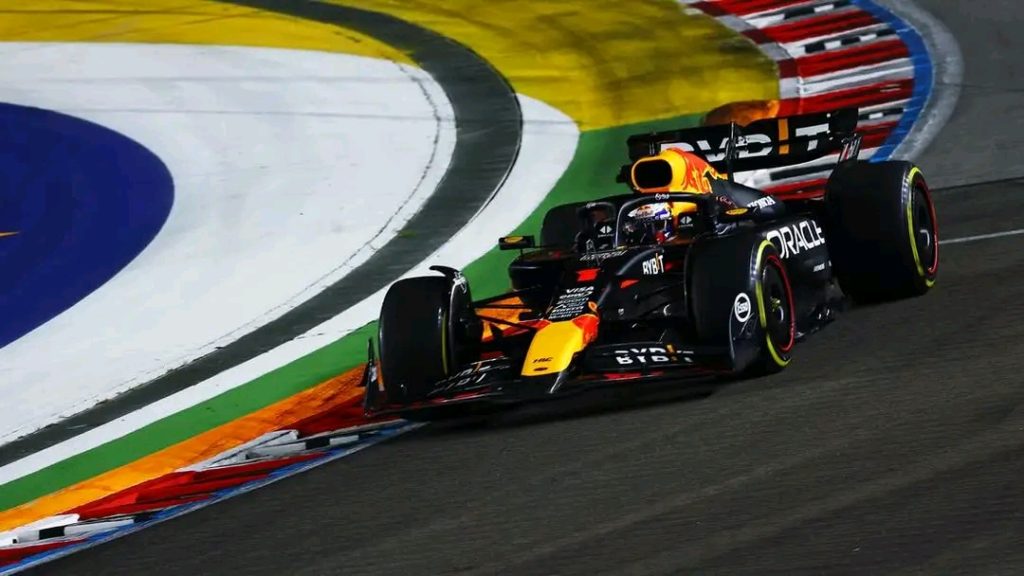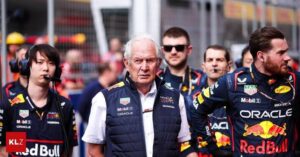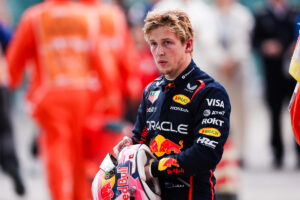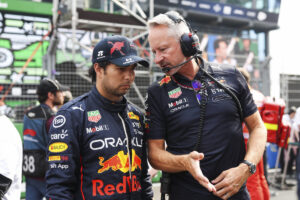BREAKING: F1’s rules need surgery as well as sticking plaster after fastest…….

F1’s Rules Need Overhaul After Fastest Lap Controversy
Formula 1’s regulations have come under scrutiny following a controversy during the Singapore Grand Prix, raising concerns over the sport’s championship integrity. A rule change introduced five years ago, combined with the influence of team ownership structures, has left F1 facing criticism, with calls for more than just minor fixes.
Heading into the Singapore race, Lando Norris’ championship fate was in his own hands. If he achieved the best possible result in every remaining race, Max Verstappen wouldn’t be able to stop him from winning the title. However, after last weekend, that scenario has changed, and not because of the performance of either driver, but due to the rules themselves.
The controversy began in the closing laps of Sunday’s race, when Norris was on track to secure the bonus point for the fastest lap. His lap time of 1’34.925, set on 16-lap-old hard tyres, was impressive and faster than the next best, Charles Leclerc, who was running on fresher tyres. Norris took risks to achieve this, even brushing the barrier at turn 10.
However, the fastest driver at the front is often at a disadvantage compared to drivers further down the field who might pit for fresh soft tyres towards the end of the race. Under F1’s current rules, only drivers finishing in the top 10 can earn the bonus point for fastest lap. For drivers outside the points, there’s little incentive to try for the fastest lap unless for personal reasons.
Daniel Ricciardo’s decision to pit late in the race for new tyres and go for the fastest lap sparked speculation. Running far out of the points in what many believe was his final F1 race, Ricciardo didn’t ask to attempt the fastest lap. Instead, his team instructed him to pit with three laps remaining. Red Bull team principal Laurent Mekies explained that they wanted Ricciardo to enjoy his final race by giving him the chance to set the fastest lap. However, McLaren Racing CEO Zak Brown and others found it suspicious that Ricciardo, driving for a team with ties to Red Bull, made a move that could influence the championship.
This situation highlights the unintended consequences of the fastest lap bonus point, a rule introduced five years ago. Critics argue that F1 never needed the rule, as it adds little intrigue and opens the door for manipulation. When the rule was introduced, former F1 managing director Ross Brawn acknowledged that a driver winning a championship by pitting for fresh tyres to set the fastest lap would be controversial but suggested that it was up to other teams to react accordingly—an unrealistic expectation.
Fan surveys conducted by RaceFans showed opposition to the fastest lap rule both before and after its introduction. F1 initially claimed that fans came to enjoy the rule, but many still view it as a gimmick that detracts from the purity of the sport. Removing the bonus point would be a step toward preventing similar controversies, but it would only address the surface of a deeper problem within the sport’s structure.
At the heart of the issue is the existence of ‘B teams’—secondary teams owned by larger competitors, such as Red Bull’s ownership of both Red Bull Racing and AlphaTauri (formerly Minardi). McLaren, particularly vocal on this issue, has long objected to the influence of such team structures on the championship. Zak Brown has called on F1’s owners, Liberty Media, to address the issue since 2018, well before McLaren re-emerged as championship contenders.
The concern is that shared ownership between teams creates opportunities for collusion. Ricciardo’s fastest lap attempt is just one example of how this dynamic can play out, with past and present Red Bull drivers often seen as fighting harder against Red Bull’s rivals than against Red Bull itself. While Red Bull’s purchase of Minardi in 2005 was initially seen as a positive move, ensuring the struggling team’s survival, the landscape of F1 has changed dramatically since then.
F1 has shown little interest in addressing the ‘B team’ problem, and as long as this remains unchallenged, controversies like the one in Singapore are likely to repeat. Fixing flawed rules like the fastest lap bonus is necessary, but the real challenge lies in addressing the larger structural issues that threaten the integrity of the championship. With new teams eager to join the sport, allowing a single company to run two teams is becoming harder to justify.








